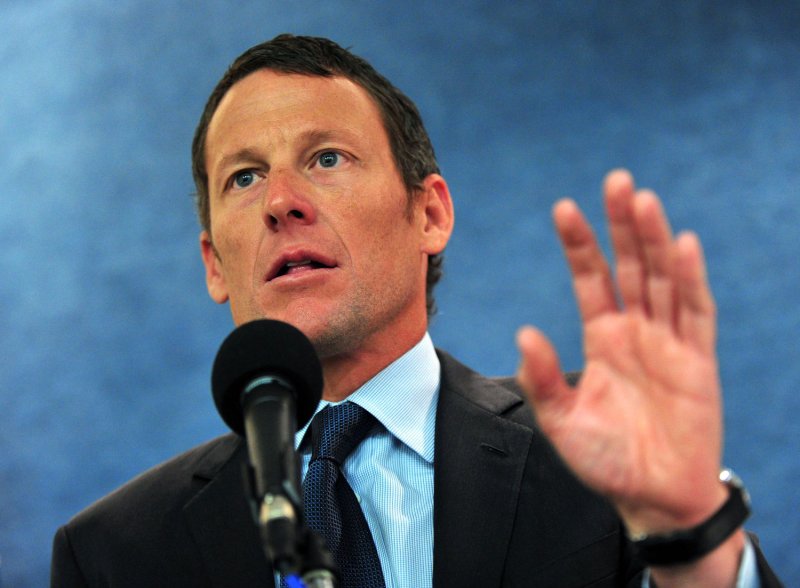Lance Armstrong, shown at a news conference in Washington March 24, 2011.UPI/Kevin Dietsch |
License Photo
BERKELEY, Calif., Oct. 8 (UPI) -- A blood-doping expert says evidence suggests Lance Armstrong used banned doping methods at the 2009 Tour de France.
Michael Ashenden, an Australian scientist who helped create a test for the blood-doping substance EPO, told the investigative journalism group California Watch an analysis, included in a court filing of blood samples drawn in 2009, suggests Armstrong was employing illegal methods to win the race.
California Watch is a part of the Center for Investigative Reporting, a non-profit organization based in Berkeley, Calif.
Armstrong, who won the Tour de France seven times finished third in the 2009 race.
Ashenden said, in an interview and follow-up email to California Watch, Armstrong's body produced fewer young red blood cells during the race than would be expected, a sign his system was adapting to the presence of a re-infused extra volume of blood, which is illegal in competitive cycling.
"Suppressed red blood-cell production is a classic signature associated with blood doping," Ashenden wrote.
The information came in what was called a "biological passport" of Armstrong's 2009 blood chemistry levels California Watch said.
Armstrong has adamantly denied doping.
"There is no in-between. Lance Armstrong has passed every test ever given to him, including every test administered during the 2009 Tour de France," his attorney, Mark Fabiani, said.
Ashenden's interpretation of the of blood data came from evidence introduced in a July lawsuit Armstrong filed in a failed attempt to block the United States Anti-Doping Agency from removing his Tour de France titles, California Watch said.















